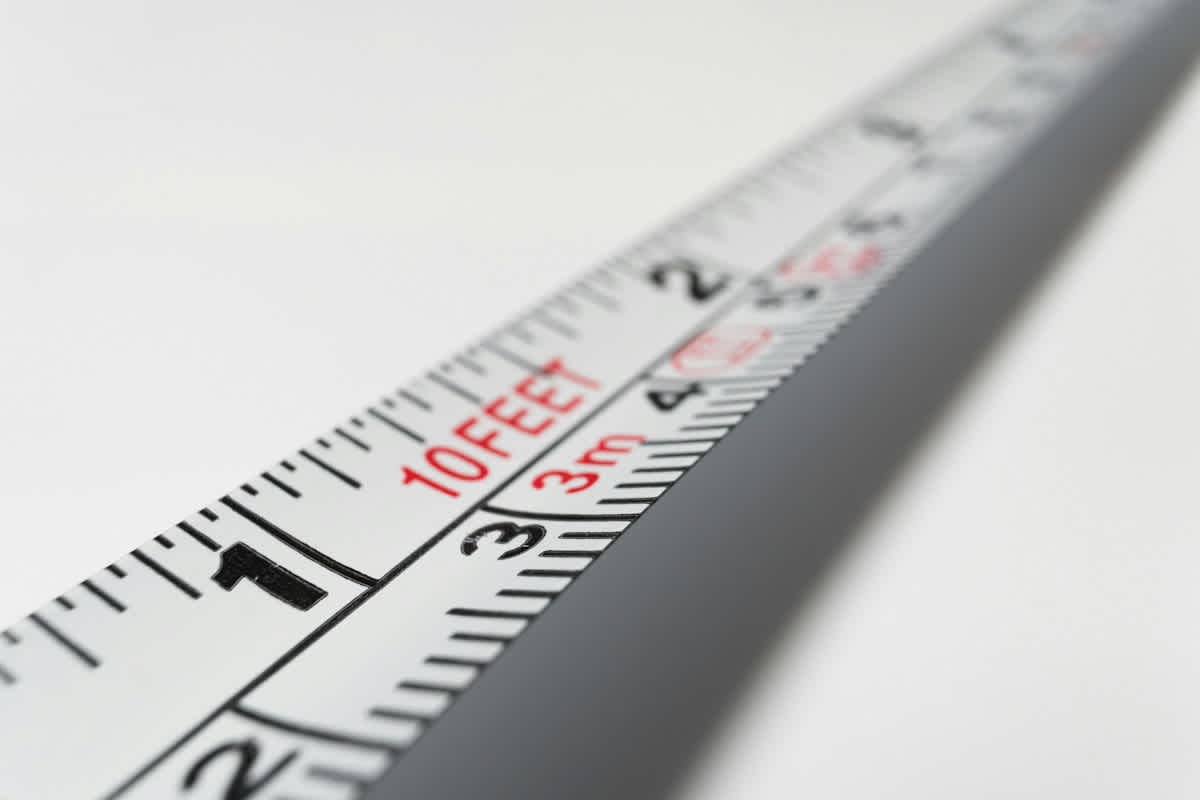
1 Corinthians Chapter 14 - The Benefits of Speaking in Tongues
Do you know just how precious it is to speak in tongues when you pray?
|
2 min read

Do you know just how precious it is to speak in tongues when you pray?
|
2 min read


What is the lifestyle of a full-time servant of God?
|
3 min read

“Love is patient…” — 1 Corinthians 13:4 When I was young, to me, miracles meant parting of the seas or blind eyes blinking open. Now? I’m convinced the bigger miracle might be waiting calmly while your child tries to wear their own shoes “all by myself,” for the 12th time this week . You sit there, watching them trying to slip the shoe on and tie the laces, determined to “do it right.” You’re already late. The taxi is waiting. And yet, somehow, you don’t explode. You breathe. You smile. And in that moment, you realize: this is a lesson in love. Because love, real love, isn’t proven in dramatic declarations. It’s revealed in the tiny, invisible decision to wait when it would be easier to rush . Paul could’ve started his poetic list of love’s qualities with something grand, like “Love is powerful” or “Love performs miracles.” But he didn’t. He started with this: “Love is patient.” Not glamorous. Not tweetable. Just… patient. Why? Because love that’s not patient isn’t love—it’s preference . It’s “I’ll love you when it’s convenient. When you’re polite. When you are obedient. ” But real love? Real love stands in line at the polyclinic and still blesses the nurse with a smile. Real love listens to the same story told by your grandmother, again and again, and reacts like it’s the first time. Real love holds the hand of a friend who’s healing slower than you expected. I once saw a mother, at the end of a long work day, bringing home her son from the caretaker, stopping at a playground trying to leave. “Come on, son,” she said. “We’ve got to go.” But the toddler had apparently has to try every playground activity at every playground in their 1 km walk home. The mother waited. And waited. No yelling. No threats. Just patient presence. And when they got to the next playground, the toddler went charging to the playground. And she waited again. And I thought: That must be what God does. Right there. In the playground. In the waiting. God’s love is never in a hurry, even when we’re limping through life. He’s not tapping His foot in heaven, arms crossed. No! He’s patient with the broken, the stubborn, the procrastinators (ahem, that’s me). If God is patient with us, shouldn’t we be a little more patient with each other? Patience is not laziness. It’s love choosing not to rush things. It’s what holds a mom together when the baby won’t sleep. It’s what keeps a caregiver gentle after 87 repeated questions. It’s what allows us to say, “Take your time. I’m not going anywhere.” Patience doesn’t mean we never feel frustrated. It means we choose not to let frustration win. You may never raise the dead or feed five thousand with your “cai fan”. But if today you offer patience when it’s easier to snap, you’re living out a miracle—one slow breath at a time. Next time someone tests your limit - your spouse, your child, the customer who still doesn’t understand how to use their phone to make an order - whisper this under your breath: “Love is patient. And so am I. With God's help. Probably.”
|
3 min read

Many Christians observe Sunday worship today. Is the Bible's command to keep the Sabbath on Saturday still relevant?
|
17 min read

The whispers of envy for the gifts others have are more common than we care to admit. We admire someone’s eloquence or melodious voice, while secretly doubting if ours matters. But comparison blinds us to the gifts God has placed within us and dims our willingness to serve. Praise the Heartbeat, Not Just the Smile We often praise what catches the eye, quick to pay compliments to someone’s smile or applaud their commanding presence. But when was the last time someone praised you for healthy arteries or how steady the rhythm of your heartbeat is? These unseen parts are what keep everything going. Yet, we rarely pay them any attention until something goes wrong. The same is true in church. Some roles may not draw applause, but if we were to remove one, the whole body feels it. Not every gift is the same, nor should it be Our gifts vary purposefully and are intentionally apportioned (1 Cor 12:11) for us to fulfil a role in Christ’s body that no one else can. We are like brushstrokes in God’s painting. Some bold, others subtle. Some define the scene, others fill the gaps. On their own, a single stroke may seem small, but without it, the masterpiece is incomplete. We are called to be faithful stewards with what we’ve been given. Whether our gift is to encourage, to serve, to give, to teach, to lead, or to show mercy, let us offer it joyfully (Rom 12:6-8). I brought store-bought ice cream to a potluck long ago. Surrounded by meticulously prepared home-cooked meals, I felt like my contribution did not measure up. But as smiles accompanied their second helpings, I realised my contribution had more worth than I gave it credit for. No single dish makes a feast, just as no single member builds the church. In the same way, it’s the chorus of all our offerings that makes the body complete (Rom 12:4-5). What may seem insignificant to you could be the very thing that strengthens someone else. And in turn, we too are uplifted by what others bring. Because together, we form a whole. May we learn to treasure not just the visible, but the faithful, for the parts of the body that seem weaker are indispensable (1 Cor 12:22). We are not meant to have every gift, nor strive for more. God designed us to be interdependent. Thus, submit to Him by using our gift faithfully, and celebrate others in theirs. Use It, Don’t Flaunt It. While we are called to use our gifts in servitude, we must also guard against the temptation to use these gifts as a pedestal for prominence or self-glorification. We did not earn our gift, nor do we have to prove worthy of it. But it is given to us for one reason, so that we can serve (1 Peter 4:10). As 1 Corinthians 12:7 reminds us, the manifestation of the Spirit is for the common good. Let us not bury our gifts in fear or comfort, lest we be found unfaithful (Matt 25:26-30). For just as God gives, He can take away. Every Dish Counts When Feeding a Family When we gather every Sabbath, it is like a spiritual potluck of grace. Bring your portion to the table with joy. Because when every gift is in motion, the church becomes a unified, radiant body. And through it all, God will be glorified (Ephesians 4:16).
|
3 min read

Christianity today is very divided and is vastly different from the church established by the apostles. There are many denominations, each interpreting the Bible in their own way. Yet to most Christians, many of these differences don’t matter and all churches still collectively belong to the body of Christ. As such, they believe that as long as one is Christian, they can be saved. I once invited a Christian friend to church. He was confused and said, “But… I already go to a church, why don’t you ask others who aren’t Christians?” Is it true that you can go to any church, and that you can be saved as long as you are Christian? Are all churches part of the body of Christ? Some Christians believe that, which is why it does not matter which church you go to. “And He put all things under His feet, and gave Him to be head over all things to the church, which is His body, the fullness of Him who fills all in all.” Ephesians 1:22-23 NKJV “And He is the head of the body, the church, who is the beginning, the firstborn from the dead, that in all things He may have the preeminence.” Colossians 1:18 NKJV It is a biblical concept that the church is the body of Christ, and Christ is head of the church. The bible goes on to say the following: “There is one body and one Spirit, just as you were called in one hope of your calling; one Lord, one faith, one baptism; one God and Father of all, who is above all, and through all, and in you all.” Ephesians 4:4-6 NKJV There is one body, one Spirit, one Lord, one faith, one baptism, one God. Is this reflected by all of Christianity today? Can we say we have one baptism today? Different churches preach different things about baptism. Some are for infant baptism, some are against it. Different churches have different takes on how baptism is conducted and whether it pertains to salvation. Is this considered “One baptism”, as it should be in the body of Christ? This points us to the issue of one Spirit. It was by the power of the Holy Spirit that the church was established on the day of Pentecost (Acts 2). In the Acts of the Apostles, we also see clearly how the Holy Spirit guided the actions of the apostles (Acts 16:6). Moreover, the Holy Spirit was also referred to as the Spirit of Truth by the Lord Jesus Himself: “However, when He, the Spirit of truth, has come, He will guide you into all truth; for He will not speak on His own authority, but whatever He hears He will speak; and He will tell you things to come.” John 16:13 NKJV If all churches are led by and established by the one Holy Spirit, how is it that there are so many versions of “truth”? As mentioned earlier, different churches have different takes on baptism. Other differences include tongue speaking. Some churches speak in tongues, while some don’t, who instead claim that tongues have ceased. Some churches hold services on the Sabbath and uphold it is a holy day, while most churches worship on a Sunday and claim that it is not important to worship on the Sabbath. Are all these contradictory pieces of information all from the same Holy Spirit, the Spirit of truth? This brings me to my next point: One faith. Can we all say that we have the one same faith, if we have so many differences in our doctrines? Some Christians may argue that we can say we have the same faith, because we all believe in the same Lord Jesus who has given us salvation. These differences in doctrines do not matter. This, I think, is the fundamental reason most may give to justify why going to any church is fine. And they quote: “For God so loved the world that He gave His only begotten Son, that whoever believes in Him should not perish but have everlasting life.” John 3:16 NKJV Yes, as written above, it is through believing in Jesus that we can be saved. But is it right to say that nothing else matters? Is that all the Bible says about being saved? Did not Jesus also say, for example, that baptism is necessary for salvation in Mark 16:16? Can believing that baptism is necessary for salvation, and not believing that baptism is necessary for salvation, be considered to be the same faith, simply beacuse both parties believe in Jesus Christ? We can see how highly Paul esteems the oneness of the gospel in his warning to the Galatians, who were pressured to keep the Jewish law, including circumcision: “I marvel that you are turning away so soon from Him who called you in the grace of Christ, to a different gospel, which is not another; but there are some who trouble you and want to pervert the gospel of Christ. But even if we, or an angel from heaven, preach any other gospel to you than what we have preached to you, let him be accursed. As we have said before, so now I say again, if anyone preaches any other gospel to you than what you have received, let him be accursed.” Galatians 1:6-9 NKJV Let us look at what the Lord Jesus once said, which some may find shocking: ““Not everyone who says to Me, ‘Lord, Lord,’ shall enter the kingdom of heaven, but he who does the will of My Father in heaven. Many will say to Me in that day, ‘Lord, Lord, have we not prophesied in Your name, cast out demons in Your name, and done many wonders in Your name?’ And then I will declare to them, ‘I never knew you; depart from Me, you who practice lawlessness!’” Matthew 7:21-23 NKJV We see here that the Lord Jesus has denied salvation to these people, who clearly believed in Him! If we truly believe in what Jesus says here, we ought to realise that it is not a mere belief and confession in Jesus that saves. If we say we believe in Jesus, yet do not believe in what He says, for example, regarding baptism for salvation, can we really say we believe in Him? This brings us to the last point: One body. If all churches were established by the Holy Spirit, there will not be so many versions of doctrines. These different beliefs cannot all be considered to be one faith, grouped under the umbrella of “believing in Jesus Christ”. There is only one gospel, as Paul says. There is only one complete truth that saves. After all, doesn’t it make sense that Jesus has only one message of salvation for us in the Bible, that should not be open to human interpretation, but rather by revelation of the Holy Spirit? And the role of the church is to uphold the truth! As Paul writes: “but if I am delayed, I write so that you may know how you ought to conduct yourself in the house of God, which is the church of the living God, the pillar and ground of the truth.” I Timothy 3:15 NKJV The church is meant to be the pillar and ground of the truth, that is, to uphold the truth. If these churches do not have the truth, how then can they be considered to be the church of God, the body of Christ, in the Bible? As mentioned in Ephesians 4, there is one faith and one body. That means there is one church with the one complete truth that saves. Do you think you can be saved if you go to a church that does not have the complete truth of salvation, and is not truly part of the body of Christ? Today the True Jesus Church believes that we are the one true church of God that preaches the complete truth, passed down by the apostles through the Bible. The True Jesus Church preaches that Baptism, Foot washing and Holy Communion are sacraments necessary for salvation. We also observe the Sabbath, and believe that receiving the Holy Spirit, evidenced by tongue speaking, is necessary for salvation. These doctrines, can all be substantiated by the Bible and it is the same one faith practiced by the Apostles in the Bible. These will not be discussed in detail in today’s article, but please do reach out to us if you are interested in the learning the truth of salvation.
|
7 min read

Having grown up in the church, partaking of the bread and cup in Holy Communion is one of the few deep-seated constants. From the breaking of the unleavened bread, to the pouring of the grape juice, to the singing of hymns, and to the receiving of a part of both wholes, one way or another, every sacrament has never ceased to move me. However, allowing myself to be moved is a very conscious decision, a very mindful act. Otherwise, it becomes all too easy to move through the superficially ordinary and routine service. As with all sacraments, their spiritual significance, everything our eyes and limbs cannot discern, surpasses their physical simplicities. The central understanding is that in the partaking of the Holy Communion, we remember God’s love for us. In total submission to God’s will from start to finish, it is because of Jesus’ sacrifice that the church can be established. Each of us was bought, brought, included and counted worthy, justified through Jesus alone. If we understand that it takes every one of us to complete the body of Jesus, that is the church, why do we still choose one over another? Or why do we stubbornly pursue self-directed agendas, cast Christ’s purpose far from mind? Pointedly reminded to humbly examine our hearts by this chapter’s example of spiritual and physical divisions in the church, in conjunction with the unifying grace of Christ’s death, let us also pray and endeavour to esteem others above ourselves, that we may dwell and work together for the good of one another and the glory of God.
|
2 min read

We may not worship physical idols, but do you have idols in your heart?
|
4 min read

The incidents of receiving the Holy Spirit are clearly recorded in the Bible. When a person receives the Holy Spirit, he/she will speak in tongues. During the apostolic times, it was something they could see and hear. It isn’t based on human feelings, but rather there’s a clear sign the Spirit of God is in a person. It is also the only criteria the apostles used to determine whether a person had received the Holy Spirit. The Bible tells us the words of God are true. From a few thousands years ago to now, the spirit of God has led this work. The Bible also mentions about the Spirit of truth, which tells us that both the truth and Holy Spirit cannot be separated. Therefore the truth we understand about the Holy Spirit today cannot and should not change. I was not a Christian in the past. But when I came to the True Jesus Church, I saw the abidance of the Holy Spirit in church. I observed that when a person received the Holy Spirit, he would speak in tongues. During the time I was seeking the truth, I experienced the moving of the Holy Spirit and later on received the Holy Spirit displayed by the speaking of tongues. I had a lot of doubts at that time. I asked a friend who was also a Christian, “What is the Holy Spirit?” My friend replied, “It’s recorded in the Bible but I’m not sure.” After coming to the True Jesus Church and studying the Bible there, I understood that what I experienced was experienced before by Christians 2000 years ago. They had received the promised Holy Spirit and spoke in tongues. Today, in the Christian world, we see that everyone has their own perspective about the evidence of receiving the Holy Spirit. Since we all believe Jesus Christ is our Saviour, we should believe the only truth given by our Lord. Therefore, we will study from the Bible. In the midst of so many different ideas and perspectives of what the evidence of receiving the Holy Spirit is, what does the Bible say? We will consider 5 propositions of what has been said to be evidence of receiving the Holy Spirit: Acts 19:2 - When Paul came to Ephesus, he met a few disciples and asked them, “Did you receive the Holy Spirit when you first believed?” Their reply to him was, “We have not so much as heard whether there is a Holy Spirit.” Here clearly tells us when one believes in Christ, it doesn’t mean he has received the Holy Spirit. From the many different perspectives, we need to see which is from the Bible. If it is the case that a person receives the Holy Spirit when believing in Christ, why did the disciples reply Paul that they had not so much as heard whether there is a Holy Spirit? This is puzzling. Furthermore, if a person receives the Holy Spirit after believing, Paul wouldn’t have needed to even ask this question either. How was Paul able to determine whether they had received the Holy Spirit? Let’s not talk about Paul, even the disciples themselves did not know if they had received the Holy Spirit. Some people may say that these disciples had only received the baptism of John and not of Jesus. Hence, their understanding of the faith was not complete, and they would therefore not have received the Holy Spirit. But is that true? Acts 8:1-4 - The church in Jerusalem was undergoing persecution. The apostles hence dispersed. v5 says Philip went down to the city of Samaria and preached Christ to them. Note that the gospel here was about Christ. v6 “And the multitudes with one accord heeded the things spoken by Philip, hearing and seeing the miracles which he did.” In Acts 8:9-13, a man named Simon who practised sorcery believed as well after seeing this. Philip preached the gospel of Christ (Acts 8:6), and the people in Samaria (Acts 8:12) and Simon the sorcerer believed (Acts 8:13). But they did not receive the Holy Spirit. Acts 8:14-17 in the Bible records the Holy Spirit had yet to come down on them. Therefore, we can conclude these people, despite having believed in Christ, had yet to receive the Holy Spirit. If we were to go back to Acts 19 and say the reason the disciples didn’t receive the Holy Spirit was because they believed in John and not Jesus Christ, consider how the people in Samaria had believed in Christ but still did not receive the Holy Spirit. Whether it was believing in John or Jesus Christ, the people had yet to receive the Holy Spirit, nor was there the evidence of having received the Holy Spirit. Acts 8:7 - Philip was able to perform signs, wonders and miracles, and also preached Christ. The people in Samaria believed in the gospel of Christ, and were healed. But we have to realise there were two different phenomenons here. Simon the sorcerer astonished the people in Samaira for a long time (v9). But the people of Samaria were more than astonished when they witnessed what Philip had done. One thing we can draw out from this is that one may perform miracles, but the power may not come from God. Even Simon the sorcerer was able to astonish men. But the power of God subdued the power of the evil one. However, we have yet to see the Holy Spirit descending on them. Therefore we can draw a conclusion that there may be signs, wonders and miracles, but that doesn’t imply the presence of the Holy Spirit. The presence of God through miracles, signs and wonders is to help people understand the truth; to help people believe; to guide people to understand the Holy Spirit. Although Philip had preached the truth and performed signs, wonders and miracles, and the people in Samaria had believed as well, the Bible clearly records that the Holy Spirit had not descended upon them. Therefore we can see that although signs, wonders and miracles followed during the apostolic times, the downpouring of the Holy Spirit is according to God’s time. We hence have to understand we have to look at the teachings of the Bible, otherwise we will assume signs, wonders and miracles means having the Holy Spirit. Not every miracle witness comes from God. Sometimes it could be the case like Simon who was able to perform miracles and people assume it’s from God. We hence cannot determine a person has received the Holy Spirit based on miracles, signs and wonders. Acts 8:12-13 - People in Samaria who believed in Christ were baptised as well. But the Holy Spirit had yet to descend on them. Acts 8:14-15 tell us that at that time, when the apostles who were in Jerusalem heard how the people in Samaria had received the word of God, Peter and John were sent to them for the purpose of praying for them to receive the Holy Spirit. It is hence clear that a person who receives baptism does not automatically receive the Holy Spirit. Acts 19:5 - We return to the disciples at Ephesus. After Paul had baptised them, he still had to lay hands on them because the Holy Spirit had yet to descend upon them (Acts 19:5-6). What are the signs of receiving the Holy Spirit? The sign was speaking in tongues (Acts 19:6). Therefore, the Bible clearly points out: Whether it was the believers in Samaria, or the believers in Ephesus; although they had believed in Jesus Christ and had been baptised in the name of Jesus; although there was the accompaniment of signs, wonders and miracles; they still had yet to receive the Holy Spirit. “After believing in Christ, I feel great joy. That means I have received the Holy Spirit. After believing in Jesus, I no longer have depression. This must be the evidence of receiving the Holy Spirit, otherwise why am I so happy?” Acts 8:7-8 - The sick were healed, demons were cast out. There was great joy in the city! According to the sequence of events in this chapter, the people had not received the Holy Spirit at this point in time yet. Why then were they so joyful? Because those who were sick and demon possessed were healed! The words of the Lord are powerful and give hope. Of course having received the gospel of truth causes joy. But this isn’t evidence of receiving the Holy Spirit. Acts 10:2 - A gentile by the name of Cornelius was a devout man who loved God and men. According to the Bible, he feared God, gave alms generously to the people and prayed to God always. But when we read on in the chapter, we realise he had yet to receive the Holy Spirit. Actually, people who don’t believe in Jesus Christ also have great love for others. But we would not draw the conclusion that they have received the Holy Spirit. Of course we hope they will receive the Holy Spirit, but the Bible clearly tells us the evidence of receiving the Holy Spirit is speaking in tongues. The Bible is very clear about this. We hence cannot use the benchmark of a person having love to determine if he/she has received the Holy Spirit. What is the evidence of receiving the Holy Spirit then? How then do we know what is the evidence of receiving the Holy Spirit? We see that those who believed in Christ didn’t receive the Holy Spirit immediately. Acts 8:17-19 - The believers received the Holy Spirit after the apostles laid hand upon them. The people in Samaria and Ephesus were the same. There was a common phenomenon for both of them: receiving the Holy Spirit is something that can be observed. What can be observed? In Acts 19:6, the disciples could be heard to have spoken with tongues. And in Acts 8, Simon the sorcerer SAW this phenomenon as well and offered money to buy this power from the apostles. Simon clearly heard and saw what happened, this was why he was willing to offer money to buy this power. But he had the wrong concept. We have discussed different propositions of evidence of having received the Holy Spirit: Acts 2:38-39 - Peter told the Jews who were keeping the Passover to repent and be baptised, and they shall receive the gift of the Holy Spirit. Before this we can see the disciples gathered together to pray, and the Holy Spirit descended (Acts 2:1-4). The Bible describes that there was a loud roaring from heaven. They began to speak in a language they didn’t understand. This is the first phenomenon of the disciples receiving the Holy Spirit. It was something people were able to SEE. What’s more important is that this teaching doesn’t come from Peter, but from the commandment of Jesus Christ. After the resurrection of Jesus, before He ascended to heaven, He told the disciples not to leave Jerusalem but to wait for the promised Holy Spirit from the Father (Acts 2:4-8). Peter followed through these commandments of Jesus and stayed there to pray. The Holy Spirit descended on the disciples and during that time, many people SAW this phenomenon. Their understanding/faith was hence based on the teachings and commandments of Jesus. Mark 16:15-17 - Before Jesus ascended to heaven He told the disciples those who repent and believe will be saved. Signs, wonders and miracles would follow. They would have the power to cast demons out in the name of the Lord, and they would speak in tongues as well. Receiving the Holy Spirit is hence a miracle and also a SIGN. When one receives the Holy Spirit, he/she should know. We hence see that John tells us in 1 John 3:24 that “he who keeps His commandments abides in Him, and He in him”. We know He abides in us because He has given us the Holy Spirit. There were people during the time of the Pentecost who didn’t believe but still saw this sign; this proves Jesus kept His promise. What’s important is that one has to ASK for the Holy Spirit. The disciples heeded the command of Jesus and didn’t leave Jerusalem but gathered there and prayed. Acts 1:5 shows that this command was given by Jesus before He ascended to heaven. Actually even before the Lord Jesus was nailed on the cross, He already told this to the disciples in Luke 11:11-13. Jesus used the human relationship between a son and father to display the need to ask for the Holy Spirit. In John 4, the Lord Jesus was talking to a Samaritan woman and discussed living water which actually referred to the Holy Spirit (John 4:10). This is evidenced by how Jesus mentions about living water when He spoke concerning the Holy Spirit in John 7:37-39. John 7:37-39 - The Holy Spirit was not yet given because Jesus was not yet glorified. Before the Lord Jesus was nailed on the cross, He had already told the disciples. In the phenomenon during the Pentecost, the disciples began to speak in tongues. Therefore, the ONLY evidence of receiving the Holy Spirit is speaking in tongues, and one can SEE and HEAR it. It’s not a feeling. It’s not other reasons either. Believing, being baptised, having joy, having love, signs, miracles and wonder are all not evidence of receiving the Holy Spirit. Speaking in tongues as the only evidence of receiving the Holy Spirit is important because without this evidence, Rom 8:9 tells us that one does not have the spirit of Christ. The consequence of that is not being His. “Now if anyone does not have the Spirit of Christ, he is not His.” During the apostolic times, people saw the apostles praying and assumed they were drunk (Acts 2:5-13). But Peter stood up and explained to them this was the gift of receiving the Holy Spirit and the evidence was speaking in tongues. Some people misunderstand the Bible, for example, when quoting 1 Cor 12 and 1 Cor 14: The gift of the Holy Spirit Peter said the people would receive in Acts 2:38 is singular; in Greek it is ‘dorea’. When Jesus spoke to the Samaritan woman in John 4:10 about the gift of God, it was singular as well - ‘dorea’. But the word used to describe the gifts in 1 Cor 12 and 1 Cor 14 is different from the word gift in Acts 2:38 and John 4:10. The word gifts in 1 Cor 12 and 1 Cor 14 is plural and in Greek it is ‘charismata’. Firstly, the Holy Spirit Himself is a gift (dorea). Secondly, there are many different gifts (charismata) of the Holy Spirit, where the Holy Spirit is the giver. We have to be very clear when studying 1 Cor 12 and 1 Cor 14 that the gifts mentioned is charismata, which is different from the gift (dorea) mentioned in Acts 2:38 that is promised by the Lord Jesus. We have to be very clear that the Holy Spirit is the gift (dorea) in Acts 2:38, but the Holy Spirit is the giver of spiritual gifts (charismata) in 1 Cor 12 and 1 Cor 14. Let us examine the difference: In 1 Cor 12:10, gifts (charismata) of different kinds of tongues from the Holy Spirit are only given to a FEW people. But the gift (dorea) of the Holy Spirit evidenced by speaking in tongues is given to EVERYONE. The church of Corinth had the gift of speaking sermons in tongues. Only a FEW had this gift. God would also give another person the gift of interpreting tongues (1 Cor 12:10). Speaking a sermon in tongues and praying in tongues are different. The former is OCCASIONAL, while the latter ALWAYS occurs. To prophesy in tongues is to edify the church, but speaking in tongues is to edify oneself. Speaking a sermon in tongues in church must be interpreted so people can understand the message (1 Cor 14:27). But the promised Holy Spirit that enables us to speak in tongues is given to us so we can pray to God. The leaders in the church in Corinth highly esteemed the speaking of sermons in tongues so it became chaotic. Paul exhorted those who received the gift from the Holy Spirit to prophesy in tongues should do so in an orderly manner; it shouldn’t be chaotic. We have to understand Paul isn’t saying these gifts are not important. Neither is he saying some of these gifts are more superior/inferior. Rather, Paul wanted to address the issue of disorderliness. This means: If you speak a sermon in tongues but no one translates it, people would not understand what you’re trying to say and you would not be able to edify others. Wouldn’t it be better to speak a sermon in plain words where people can understand and be edified? (1 Cor 14:1-5) It’s never the instance Paul says these gifts are not important. He doesn’t despise them. But if there was no one to interpret the prophecy by tongues, then they didn’t have to speak the prophecy/revelations by God in tongues. Instead, they should just pray in tongues to God (1 Cor 14:2). Paul doesn’t say to restrict that. Because of 1 Cor 12 and 1 Cor 14, some deduce that from henceforth we don’t need to speak in tongues. However, we referred to verses in the Bible just now and understood the only evidence of receiving the Holy Spirit is speaking in tongues. May God open our hearts that we may be able to understand it.
|
13 min read


Some argue that as infants are unable to believe, they should not be baptised. They quote the incident of Philip and the Ethiopian eunuch, where Philip told him that if he believed with all his heart, he could get baptised (Acts 8:36-37). However, the True Jesus Church believes that we should, in fact, conduct infant baptism! While it is true that water baptism is an act of faith, it is more than just a confession of one’s faith, but also carries with it important spiritual implications. Let us look at it from a few angles. Firstly, water baptism is necessary for salvation. We can see this from Jesus’ command to the disciples to preach the gospel and baptise people. “He who believes and is baptized will be saved; but he who does not believe will be condemned.” Mark 16:16 NKJV Some argue that it is the faith that saves and not baptism. However, in 1 Pet 3:21, Peter mentions explicitly that baptism saves! “There is also an antitype which now saves us—baptism (not the removal of the filth of the flesh, but the answer of a good conscience toward God), through the resurrection of Jesus Christ,” I Peter 3:21 NKJV Baptism saves, because through it we now have a good conscience before God. That means our sins are forgiven! And this is corroborated by Acts 2:38 and Acts 22:16. “Then Peter said to them, “Repent, and let every one of you be baptized in the name of Jesus Christ for the remission of sins; and you shall receive the gift of the Holy Spirit.” Acts 2:38 NKJV “And now why are you waiting? Arise and be baptized, and wash away your sins, calling on the name of the Lord.’” Acts 22:16 NKJV From these verses, we can see that water baptism is necessary for salvation, because our sins are washed away through baptism. The Bible tell us that death came into the world through the sin of Adam. And death spread to all man, because all sinned! Death is a result of sin, and all are condemned because of Adam’s offence. “Therefore, just as through one man sin entered the world, and death through sin, and thus death spread to all men, because all sinned—” Romans 5:12 NKJV “And the gift is not like that which came through the one who sinned. For the judgment which came from one offense resulted in condemnation, but the free gift which came from many offenses resulted in justification.” Romans 5:16 NKJV All humans, from the point of their birth, are subject to death. That is a reflection of the sin that is in us. We are, by default, because of Adam’s sin, sinners as well, and subject to eternal condemnation. That means that if an infant dies, he/she will also be condemned eternally! As such, water baptism should also be conducted for infants for the remission of their sins. Infants also need salvation! Secondly, it is through baptism that we become part of the body of Christ. “For by one Spirit we were all baptized into one body—whether Jews or Greeks, whether slaves or free—and have all been made to drink into one Spirit.” I Corinthians 12:13 NKJV “Now you are the body of Christ, and members individually.” I Corinthians 12:27 NKJV Paul also links the idea of the body of Christ to salvation, saying that Jesus Christ has reconciled both Jews and Greek, in one body, to God. “and that He might reconcile them both to God in one body through the cross, thereby putting to death the enmity.” Ephesians 2:16 NKJV Without baptism, infants are not part of this body of Christ that is reconciled to God. How then, can they be saved without baptism? Thirdly, baptism in the new testament, is likened to circumcision in the old testament. “In Him you were also circumcised with the circumcision made without hands, by putting off the body of the sins of the flesh, by the circumcision of Christ, buried with Him in baptism, in which you also were raised with Him through faith in the working of God, who raised Him from the dead.” Colossians 2:11-12 NKJV Interestingly, circumcision was also a requirement to be considered a part of God’s people! Even foreigners who want to be included as God’s people, and keep the Passover, also have to be circumcised. “And the uncircumcised male child, who is not circumcised in the flesh of his foreskin, that person shall be cut off from his people; he has broken My covenant.”” Genesis 17:14 NKJV “And when a stranger dwells with you and wants to keep the Passover to the Lord, let all his males be circumcised, and then let him come near and keep it; and he shall be as a native of the land. For no uncircumcised person shall eat it.” Exodus 12:48 NKJV We can see from the above verses that circumcision was very important, and was a requirement to be the people of God. But, what was the significance behind the action? Was it just a physical act, or a work of the law? “And he received the sign of circumcision, a seal of the righteousness of the faith which he had while still uncircumcised, that he might be the father of all those who believe, though they are uncircumcised, that righteousness might be imputed to them also, and the father of circumcision to those who not only are of the circumcision, but who also walk in the steps of the faith which our father Abraham had while still uncircumcised.” Romans 4:11-12 NKJV Paul explains that circumcision was a sign given to Abraham of his righteousness, as a result of his faith in God! And that he might be a father of faith, to those who believe (but are uncircumcised), and those who are not only circumcised, but walk in faith! That is to say, circumcision is actually a sign that one is a descendant of Abraham, the father of faith, and likewise walks in faith in God. When then is circumcision performed on the Israelites? When they are merely 8 days old! “He who is eight days old among you shall be circumcised, every male child in your generations, he who is born in your house or bought with money from any foreigner who is not your descendant.” Genesis 17:12 NKJV Even though it is a sign of faith, we can see that God commanded the Israelites to be circumcised when they were only eight days old, an age where it is basically impossible for these neonates to show any signs of faith. God wants these children to be part of His people as early as possible! Since baptism is likened to circumcision in various ways, namely an act required to be part of God’s people, and also a sign of faith in God, why should infants be denied baptism, the way of entry into the body of Christ, simply because they are too young to confess their faith? The Bible places an importance on parental faith. In the case of the Philippian jailer, by his faith, his whole household was saved. That would have included his children as well. “So they said, “Believe on the Lord Jesus Christ, and you will be saved, you and your household.” Then they spoke the word of the Lord to him and to all who were in his house. And he took them the same hour of the night and washed their stripes. And immediately he and all his family were baptized.” Acts 16:31-33 NKJV We can also see how Jesus saved the children of the nobleman and the Canaanite woman, because they both had faith in Jesus. “The nobleman said to Him, “Sir, come down before my child dies!” Jesus said to him, “Go your way; your son lives.” So the man believed the word that Jesus spoke to him, and he went his way.” John 4:49-50 NKJV “Then Jesus answered and said to her, “O woman, great is your faith! Let it be to you as you desire.” And her daughter was healed from that very hour.” Matthew 15:28 NKJV The Bible also tell us that it is the parent’s responsibility to train up children in fearing God. “And you, fathers, do not provoke your children to wrath, but bring them up in the training and admonition of the Lord.” Ephesians 6:4 NKJV “Train up a child in the way he should go, And when he is old he will not depart from it.” Proverbs 22:6 NKJV Therefore, children of believers, who are not old enough to understand the concept of faith, should still be baptised, if their parents have faith. In fact, they need to be baptised to be part of the body of Christ and to have their sins forgiven! The responsibility of teaching them how to fear God and walk in faith thereafter, lies with their parents. In conclusion, let us remember that Jesus said, “Let the little children come to Me, and do not forbid them; for of such is the kingdom of God (Mk 10:13-16).” Let us not deny these children from being a part of His body and salvation.
|
7 min read